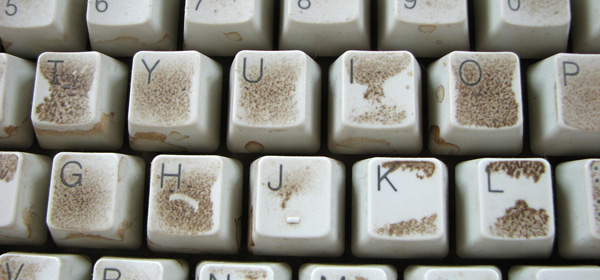How clean is your electronic hygiene? And no, I’m not talking about dirty downloads. But a few bad computer habits can definitely sully the efficiency of your electronic device.
As expectations of instant gratification from our PC interactions grow, there is nothing more frustrating than a ‘slow’ computer. And it isn’t always the NBN’s fault.
Fortunately, there are simple ways to speed up our PCs without the need for any tech know-how.
Browser speed bumps
Are you a fan of clogging your browser by not closing down sites you have finished visiting? If so, you shouldn’t be surprised that your PC is grinding along at a snail’s pace. You are asking it to do too many tasks at once.
Your computer keeps a track of every site you visit in the History tab across the top of your screen. So get into the habit of closing tabs and if you want to return to a site, just look up its address in History.
Laggards a drag
Some programs use up more of your computer’s processing power than others, eating up the ‘energy’ it has for performing tasks efficiently. It’s sensible to weed out those programs if you rarely use them or haven’t done so in a long time.
To do that, open the Task Manager program if your PC is Windows based, or Activity Monitor if it’s a Mac. By selecting CPU – short for central processing unit – you will see a list of all the programs on your computer in order of how much ‘grunt’ they are using.
If there are some at the top of the list that you installed a while back but no longer need, now is the time to de-install them. This will save the energy of the CPU and allow it to redirect to other tasks, and hopefully help to speed up its performance.
Anti-virus antidote
Some anti-virus programs guard PCs so ferociously that they regularly run badly-timed, full scans, sucking up so much processing power that other functions seem to stall.
You can manage how and when the anti-virus checks are performed by going into the program’s settings and selecting your timing preference. Some free anti-virus software won’t allow you to do this, so it’s a good idea to upgrade to one that you can control to suit you.
All fired up
Macs with too many icons and desktop files displayed on the screen will be slower than those whose owners have taken the trouble to build a network of folders. By not storing them in folders, you are basically signalling that you want these files fired up and ready to be opened the minute you switch the PC on. This standby mode is energy sapping.
Techlitious.com recommends following these steps to clean up your standby status:
- Mac: Applications / Systems Preferences / User Groups / Login Items, then uncheck unneeded programs. Delete desktop icons you don’t use by trashing them or, in the case of files you’ve saved to desktop for convenience, reorganising to the appropriate folder
- Windows 8 and 10: Windows key + X / Task Manager / Startup tab, then right-click on the programs you want to remove and select Disable
- Windows 7 and older: Start button, then search for System Configuration. Go to Startup tab, uncheck each of the programs you don’t want starting when the system boots up.
Do your chores
Just like your house, a computer needs a spring clean to make sure it stays healthy. If the area where you use your PC is dusty, clean it so that the equipment’s vents do not become clogged with dust. A computer that cannot regulate its temperature will overheat and begin to slow down.
Perhaps it is the PC memory that is too clogged with downloads, photos, and other paraphernalia. At least once a year, upload your content to the Cloud where it will be stored for you to access anytime.
If you can’t bring yourself to trust the Cloud, save your electronic possessions onto a USB stick instead. Then proceed to trash the clutter on your system … and don’t forget to empty the trash can when you are done.
Do you have any tips for speeding up the functions in your PC? Has your computer ever had so much clutter that it has stopped working altogether?
Related articles:
YLC computer tutorials
Three PCs under $500
What is the cloud?

